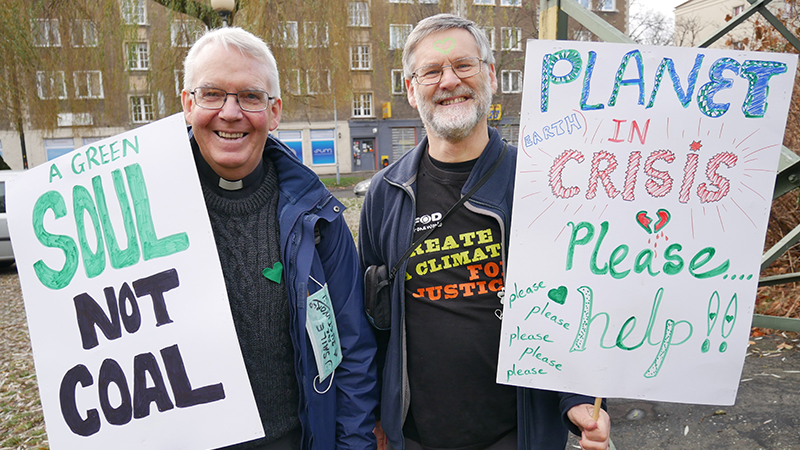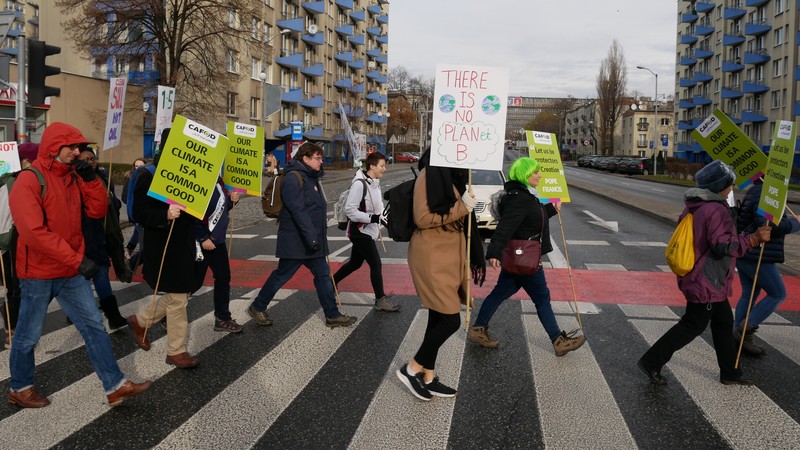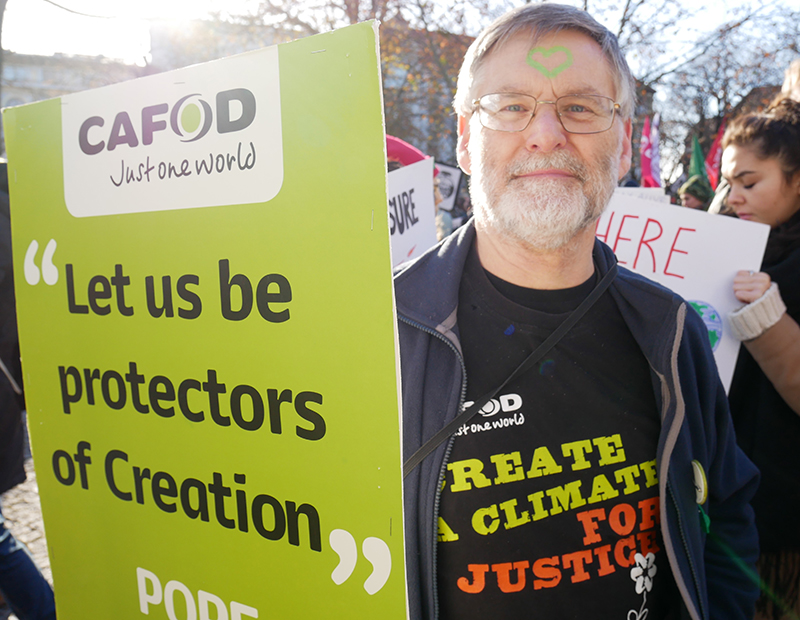Witnessing action on the climate crisis

Father Hugh Pollock and Stephen Garsed are CAFOD campaigners and joined us for the climate change summit in Poland. They tell us about a few bits they saw and the fired-up attitude they have brought home.
Why did you go?
We went to speak up for climate justice on behalf of the people of Lancashire and Cumbria and to be eye witnesses – to learn, to think deeply and to bring that learning home.
The climate crisis is one of the biggest injustices in the world. It is often the people already at the very edge of survival who are the most vulnerable, yet it is the rich who have created the problem. Sadly, many people don’t see the problem because they have not experienced climate change directly. Yet many in our own diocese do know all about it, having been flooded out, particularly in 2015. Ironically during the last big climate change conference in Paris in 2015.

Communities affected by climate change
We heard from people whose communities have already been seriously affected by the climate crisis. A woman of the Sami people in northern Sweden described her reindeer starving because global warming was melting the snow. When it re-froze, the resulting ice was too hard for the reindeer to break through to reach their food.
In contrast, a CAFOD partner from Malawi described the devastating effects of the prolonged drought in East Africa. Most poignant was the delegate from the Marshall Islands who told how his home was gradually disappearing under the rising seas. He was understandably angry at the complete indifference of an Arab delegate to the plight of his island and its people.
What really hit us as we listened was not just the physical effects, but the psychological and emotional effects. The way of life and traditions of these communities were being threatened. Imagine what it feels like to know that you are probably the last generation to live as your ancestors did.

The next day we attended High Mass at Katowice Cathedral where Hugh and the other priests attending had the privilege of concelebrating with the Archbishop. It was followed by a reception hosted by the Archbishop who personally thanked each one of us for coming to Poland to speak up for climate justice.
Next steps
The overriding aim of the conference was to agree a “rulebook” to implement the promises made at the Paris conference which aimed to limit the rise of global temperature to 1.5C.
This is a tough ask, since we have already allowed global temperatures to rise by 1C. The objective was largely met, but there was a worrying lack of ambition from many nations to go further or to accelerate the timescales.
So was it worth it?
We saw the, often exhausted, delegates inspired by our march and particularly by the many young people. But much more than that, we have come back fired up to change attitudes at home. Because the climate crisis will have such a devastating effect on humanity, we must take every possible step to minimise it. Not as an “add-on”, but an essential part of living the gospel.